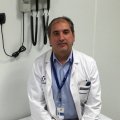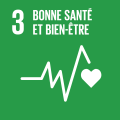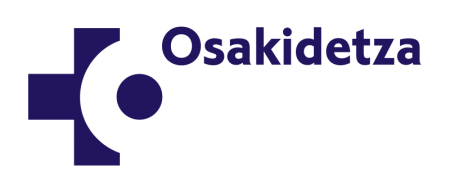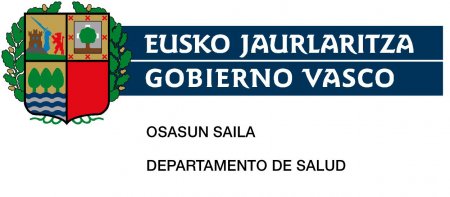
Enfermedades autoinmunes sistémicas
Description
Systemic autoimmune diseases (SAD) continue to be a big challenge for clinicians, given their complexity, clinical variability and potential impact in the life of patients, many of them young women.
Over the last 7 years, the Autoimmune Diseases Units from Cruces and Bordeaux University Hospitals have established a collaborative clinical and research program, including joined Lupus-Cruces and Lupus-Bordeaux research projects and annual Basque Lupus Seminars at Baiona.
In the 2018, 2019 and 2021 editions of the University of the Basque Country Summer Courses at Donostia (the 2020 course was unfortunately cancelled due to the COVID-19 pandemic), we have contributed with the course Enfermedades Autoinmunes Sistémicas / Systemic Autoimmune Diseases. It has been conceived as a practical course, remarking the importance of a collaborative multidisciplinary approach and including real-life clinical situations from our two Units with an interactive approach.
This proposal for the 2022 edition follows the same scheme than the 2021 course, with agile round tables, short and frequent breaks and plenty of room for debate among speakers and assistants. As in previous editions, we include a section of clinical images and another of challenging clinical case presentation and discussion based on daily practise, with the aim of stimulating the participation of attendees.
Objectives
To update the diagnostic process and clinical management of the different SAD.
To remark the importance of multidisciplinary team work.
To discuss with the attendants real-life clinical cases with an eminently practical approach.
Activity directed to
- University student
- Professionals
Program
17-06-2022
Registro y entrega de documentación
Presentation by the Director of the activity
- Guillermo Ruiz Irastorza | HU Cruces - Unidad de Enfermedades Autoinmunes
MESA REDONDA 1. ENFERMEDAD INTERSTICIAL PULMONAR AUTOINMUNE
“16:35-16:50 Presentación clínica y estudios funcionales“
- Marta García Moyano | HU Cruces - Sº Neumología
“16:50-17:05 La TC pulmonar: una herramienta fundamental“
- Marta Lázaro Serrano | HU Cruces - Sº Radiodiagnóstico
“17:05-17:20 Tratamiento de la enfermedad intersticial pulmonar autoinmune“
- Cristina Gonzalez de Echavarri | HU Cruces. - Unidad de Enfermedades Autoinmunes
Discusión
Break
MESA REDONDA 2. ESCLERODERMIA & MIOSITIS
“17:40-18:00 Tratamiento de la esclerodermia“
- Daniel Martín Iglesias | HU Cruces - Unidad de Enfermedades Autoinmunes
“18:00-18:20 Tratamiento de las miopatías inflamatorias“
- Victor Moreno-Torres Concha | HU Puerta de Hierro-Majadahonda - Sº Medicina Interna
Discusión
Break
“18:40-19:00 Una imagen vale más que mil palabras“
- Nerea Agesta Sánchez | HU Cruces - Sº Dermatología
18-06-2022
MESA REDONDA 3. STRANGER THINGS
“ 09:30-09:50. Síndrome antifosfolípido catastrófico“
- Jimena Varona Pérez | HU Cruces - Sº Medicina Interna
“ 09:50-10:10 Disautonomías autoinmunes“
- Juan Carlos Gómez Esteban | HU Cruces - Unidad de Disautonomías. Sº Neurología
Discusión
Break
MESA REDONDA 4. LUPUS ERITEMATOSO SISTEMICO
“10:30-10:50 Las pequeñas otras cosas del lupus“
- Mónica Ferreiro Montenegro | HU Cruces - Unidad de Enfermedades Autoinmunes
“10:50-11:10 El ABC del tratamiento del lupus“
- Guillermo Ruiz Irastorza | HU Cruces - Unidad de Enfermedades Autoinmunes
Discusión
Break
Round table: “MESA REDONDA 5. CASOS COMO LA VIDA MISMA.“
- Leonor Acha Isasi | HU Cruces - Sº Medicina Interna
- Marina Torío Salvador | HU Cruces - Sº Medicina Interna
- Adriana Soto Peleteiro | HU Cruces - Unidad de Enfermedades Autoinmunes
- Ioana Ruiz Arruza | HU Cruces - Unidad de Enfermedades Autoinmunes
Closing session
- Guillermo Ruiz Irastorza | HU Cruces - Unidad de Enfermedades Autoinmunes
Directors

Guillermo Ruiz Irastorza
UPV/EHU, Medicina
1990.- Licenciado en Medicina, Universidad Autónoma de Madrid, 1999.- Doctor en Medicina, Universidad del País Vasco 1996.- Especialista en Medicina Interna 1991-1995.- Residente de Medicina Interna, HU Cruces 1994 & 1999-2000.- Research Fellow, Lupus Research Unit, St. Thomas' Hospital, UK 1997-2001.- Facultativo Especialista en Medicina Interna, Hospital de Mendaro 2001-2010 - Facultativo Especialista en Medicina Interna, HU Cruces 2010.- Jefe de Sección de Enfermedades Autoinmnes, HU Cruces 2024.- Coordinador CSUR de Enfermedades Autoinmunes Sistémicas, HU Cruces 2004.- Profesor Titular de Medicina, Universidad del País Vasco 217 publicaciones indexadas. Areas principales de investigación: lupus eritematoso sistémico, síndrome antifosfolípido, enfermedades autoinmunes y embarazo. Miembro de SLICC (Systemic Lupus Collaborating Clinics). Miembro del Grupo de Estudio de Enfermedades Autoinmunes Sistémicas (GEAS). Coordinador del Area de Enfermedades Autoinmunes, Inflamatorias e Infecciosas BioCruces Bizkaia.
Speakers

Leonor Acha Isasi

Nerea Agesta Sánchez
Hospital Universitario Cruces, Facultativo especialista de área

Mónica Ferreiro Montenegro

Marta García Moyano

Juan Carlos Gómez Esteban
Juan Carlos Gomez-Esteban, MD, PhD, is the director of the Neurodegenerative Disease Group at Biocruces Health Research Institute (Baracaldo, Spain); full-time lecturer in the Department of Neurosciences of the University of the Basque Country (UPV/EHU); and consultant in the Movement Disorders and Autonomic Disorders Unit at Cruces University Hospital (CUH). He majored in medicine at the UPV/EHU, specialized in neurology at CUH and received his PhD in neuroscience from UPV/EHU in 2008, after which he performed a postdoctoral training in the Autonomic Center of New York University. His research interests include the autonomic nervous system, movement disorders, and Parkinson's Disease's pathophysiology and genetics. Dr. Gomez-Esteban co-directs the group of Movement Disorders and Autonomic Disorders Unit at CUH, which pioneered the identification of the E46K mutation of the alpha-synuclein gene in 2004, a paper that has already 1726 citations. His group is highly focused on phenotypic characterization of genetic variants of Lewy body diseases. His research group has 10 ongoing research projects and in the last 5 years Dr. G mez- Esteban has obtained continuous financial support for research. During this period, he has published 40 research articles with a cumulative citation index of 223 (excluding self-citations).

Cristina Gonzalez de Echavarri

Marta Lázaro Serrano
- Licenciatura en Medicina UPV en 1999 - Especialidad Radiodiagnóstico Hospital Universitario de Cruces en 2004 - Desde entonces trabajando como médico adjunto en Servicio de Radiología, con especial dedicación al TC. - Dedicación específica a la Radiología Cardiotorácica desde el año 2010 - Miembro del Comité multidisciplinar de cáncer de pulmón y del Comité de enfermedades intersticiales del hospital - Participación como docente en cursos de Radiología de tórax - Ponente en diversas jornadas y reuniones centradas en radiología Torácica - Participación en proyectos de investigación del hospital

Daniel Martín Iglesias

Victor Moreno-Torres Concha

Ioana Ruiz Arruza

Guillermo Ruiz Irastorza
UPV/EHU, Medicina
1990.- Licenciado en Medicina, Universidad Autónoma de Madrid, 1999.- Doctor en Medicina, Universidad del País Vasco 1996.- Especialista en Medicina Interna 1991-1995.- Residente de Medicina Interna, HU Cruces 1994 & 1999-2000.- Research Fellow, Lupus Research Unit, St. Thomas' Hospital, UK 1997-2001.- Facultativo Especialista en Medicina Interna, Hospital de Mendaro 2001-2010 - Facultativo Especialista en Medicina Interna, HU Cruces 2010.- Jefe de Sección de Enfermedades Autoinmnes, HU Cruces 2024.- Coordinador CSUR de Enfermedades Autoinmunes Sistémicas, HU Cruces 2004.- Profesor Titular de Medicina, Universidad del País Vasco 217 publicaciones indexadas. Areas principales de investigación: lupus eritematoso sistémico, síndrome antifosfolípido, enfermedades autoinmunes y embarazo. Miembro de SLICC (Systemic Lupus Collaborating Clinics). Miembro del Grupo de Estudio de Enfermedades Autoinmunes Sistémicas (GEAS). Coordinador del Area de Enfermedades Autoinmunes, Inflamatorias e Infecciosas BioCruces Bizkaia.

Adriana Soto Peleteiro

Marina Torío Salvador

Jimena Varona Pérez
Registration fees
| Face-to-face | Until 17-06-2022 |
|---|---|
| 80,00 EUR | |
| 68,00 EUR | |
| 56,00 EUR | |
| 20,00 EUR | |
| 0 EUR |
| Live online | Until 17-06-2022 |
|---|---|
| 80,00 EUR | |
| 68,00 EUR | |
| 56,00 EUR | |
| 20,00 EUR | |
| 0 EUR |
Venue
Miramar Palace
Pº de Miraconcha nº 48. Donostia / San Sebastián
Gipuzkoa
Miramar Palace
Pº de Miraconcha nº 48. Donostia / San Sebastián
Gipuzkoa
Sustainable development goals
Agenda 2030 is the new international development agenda approved in September 2015 by the United Nations. This agenda aims to be an instrument to favour sustainable human development all over the planet, and its main pillars are the eradication of poverty, a reduction in equality and vulnerability and fostering sustainability. It is a unique opportunity to transform the world up to 2030 and guarantee human rights for all.

3 - Good health and well-being
Guarantee a healthy life and foster the well-being of all people of all ages. Key issues: universal healthcare coverage, sexual and reproductive health, reduction in the number of road accident casualties, pollution and chemical products, reduction in maternal and neonatal mortality, the end of epidemics such as AIDS, combating hepatitis and other water-borne diseases, drug and alcohol prevention, control of tobacco.
More information







